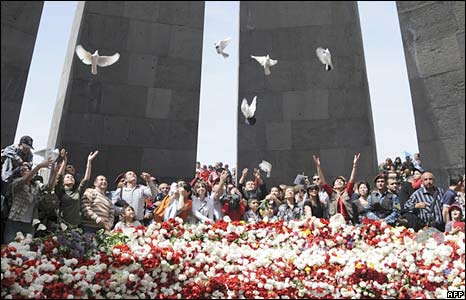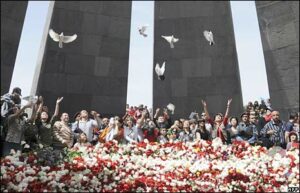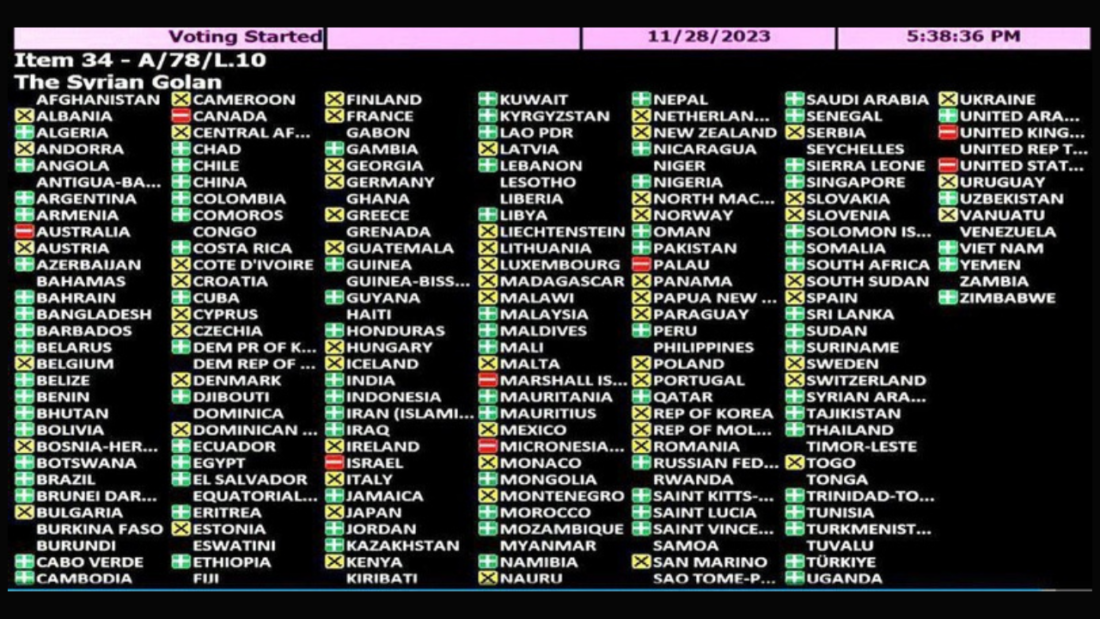
Intervention of Stefanos Stefanou, member of the Political Bureau of the C.C. of AKEL, at the Global Forum “Against the Crime of Genocide”
22-23rd April 2015, Yerevan, Armenia
 Cyprus was always a supporter of the Armenian people in their struggle for the recognition and memory of the Genocide it suffered. Besides, Cyprus was the first European country, indeed the second in the world, to recognize the Armenian Genocide and the first country to raise the issue before the General Assembly of the United Nations. In addition, last month the House of Representatives of the Republic of Cyprus proceeded to the criminalization of the denial of genocides when these have been recognized as such either by a final decision of an international court or through a unanimous decision approved by the House of Representatives, a fact that evidently covers the Armenian Genocide as well.
Cyprus was always a supporter of the Armenian people in their struggle for the recognition and memory of the Genocide it suffered. Besides, Cyprus was the first European country, indeed the second in the world, to recognize the Armenian Genocide and the first country to raise the issue before the General Assembly of the United Nations. In addition, last month the House of Representatives of the Republic of Cyprus proceeded to the criminalization of the denial of genocides when these have been recognized as such either by a final decision of an international court or through a unanimous decision approved by the House of Representatives, a fact that evidently covers the Armenian Genocide as well.
We adopt this clear position on the Armenian Genocide not just because as Cypriots we experienced the invasion and continue to experience Turkey’s illegal occupation; not only because after the massacres, deportations and Genocide, thousands of Armenians fled to Cyprus and were integrated in the forward-looking Armenian community that has been living for centuries on our island, which is safeguarded constitutionally since the establishment of our state. Cyprus has a very clear position because we strongly believe that the punishment, and above all the memory of such crimes contribute towards their non-recurrence. We therefore share the approach of Armenia which together with the defence of the memory and the demand for the universal recognition of the Genocide, focuses on the future and the universal dimension of the struggle to prevent the recurrence of such terrible pages in the history of the human race.
However, how do we – in practice – prevent that any people, ethnic group or minority will not find itself again the target of ruthless killers who want to wipe them off the face of the earth? That is the question and the task the history of the 20th century sets to humanity today. This is the obligation that the slaughtered Armenians, Jews who were martyred in the Nazi ovens, the Tutsi whose blood flooded Rwanda twenty years ago, but also the Native Indians of North America who in another era were wiped out from their land, set us. This is the question that the children of Palestine may ask us in the future.
The United Nations Convention on the Prevention and Punishment of the Crime of Genocide, as well as the Convention on the Non-Applicability of Statutory Limitations to War Crimes and Crimes against Humanity unquestionably constitutes a substantial concrete response from the international community. More specifically, with regards the crime of genocide, the institution of the UN Special Adviser on the Prevention of Genocide has and does play a crucial role. The Analysis Framework of the Office of the UN Special Adviser to detect the Risk of Genocide and to assess situations on the ground that can develop into genocide also represents an important tool.
The cruel reality, however, reveals that it is not the legal and institutional tools that are missing so that the international community can prevent genocide or other atrocities. It is the sincere political will which is missing. The efforts and the credibility of the international community are damaged when interests and biases prevail in the judgment and actions of the powerful players of the modern world. Besides this is the reason why there are different views surrounding the principle of “Responsibility to Protect”, which in our view cannot become a vehicle for legitimizing unilateral military interventions. Unfortunately, the world has witnessed interventions whose motives were not the prevention crimes against humanity, but the destabilization of states and the promotion of geopolitical interests. There are even cases when the prosecutors should have been the ones indicted.
The most effective way to prevent genocide conflicts is to eradicate their causes, provided that we first understand them. As a rule, genocide and related atrocities are committed in societies which include different ethnic, racial or religious groups. However it is not the heterogeneity itself that causes conflict. Only when there is, or when a section of a population considers there is discrimination in the rights and quality of life due to race, ethnicity or religion, is the ground for conflicts prepared. These situations that are reproduced through racist propaganda represent flammable material which when lit – every so often also as a result of external interventions – can develop enormously to the level of genocide. When indeed this propaganda is deeply rooted in the social consciousness, then large sections of society tolerate acts of genocide, crimes against humanity or other “milder” racist crimes. This concerns all the states in the world, of which almost none can now be defined as ethnically, religiously, or racially totally homogeneous.
Consequently, the combating of racial hatred and the safeguarding of human rights for all without discrimination proves to be the surest prevention of genocide and related crimes. This in turn presupposes a humanistic democratic culture, a state rooted in the rule of law, an independent judiciary and economic policies that eliminate inequalities and marginalization.
Let’s make these goals, the tribute and memory to the 1.5 million victims of the Armenian Genocide of 1915, but also to the victims of the Genocides that were committed in the past or that followed. Let’s keep the Armenian Genocide as a historical painful reminder of what human beings are capable of committing against each other. At the same time, let it be a constant command: the coming generations will be safe not only when genocides stop being committed, but when their causes cease to exist.




